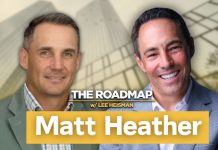On this episode of The Roadmap, host Lee Heisman sits down with Dr. Lollie Mancey, an anthropologist, entrepreneur, and program director at University College Dublin. With a PhD in organizational learning and a unique lens on the future of human interaction with technology, Dr. Mancey brings invaluable insights. From the role of AI in reshaping industries to the consequences for our mental health and society, this conversation uncovers the critical intersection of technology, humanity, and the future of work.
Key Takeaways
1. Dr. Mancey illuminates how the EU AI Act imposes stricter boundaries on AI use, creating challenges for businesses operating across regions. She compares Europe’s regulatory landscape to the “Wild West” of the United States, highlighting how companies must adapt to different sets of rules depending on where they operate.
2. While technology is designed to enhance efficiency, Dr. Mancey warns that it also leads to social isolation and “time blindness.” She stresses the importance of recognizing how devices keep us captive and the long-term effects this has on human connection and mental health.
3. As AI continues to evolve, the automation of jobs becomes inevitable. In the age of advanced AI, Dr. Mancey emphasizes the need to address job automation and reskill workers to prevent societal collapse.
4. Dr. Mancey discusses the next evolution of consumer engagement—AI-powered dynamic pricing systems. These systems will adjust prices based on customer interaction and engagement, a shift that could further widen socioeconomic divides.
5. Despite the dystopian possibilities, Dr. Mancey remains a tech optimist. She advocates for creating a future where technology works harmoniously with nature, human connection, and societal well-being rather than driving us toward a soulless, steel-clad existence.
“We need to now be less fearful, educate ourselves, and say, 'I want to have a voice in this, and I actually want to be part of that.' The best thing you can do is talk to other people about what’s your understanding, and be very discerning about where you get your information.” – Dr. Lollie Mancey









